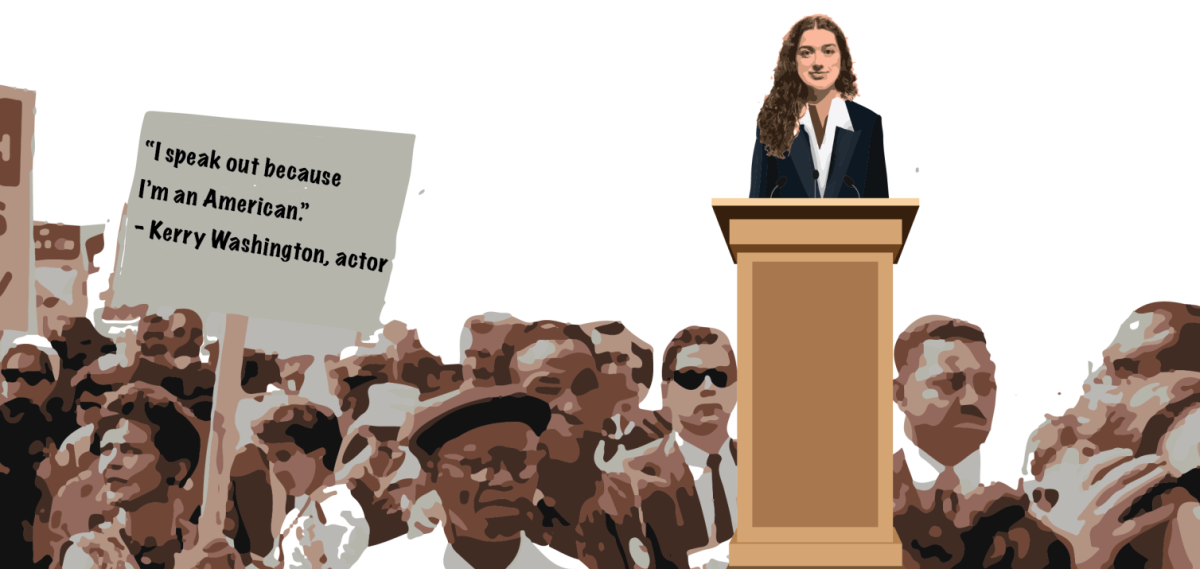As the bell rings at the end of break, underclassmen rush from the Grille while seniors rush from the parking lot, everyone trying to avoid being late to class. We all have our horse blinders on, focusing solely on ourselves, not caring who we bump into on the way. Our worlds collide when one of us pulls the door open and another student barges through – sometimes without even uttering a “thank you.” The manners our parents have tried to instill in us are dwindling.
According to an annual survey in 2003 conducted by Lenox, a gift company, 34% of surveyors rated Americans’ manners as poor, a near 50% increase from the survey’s results in 2002. However, we blame our poor manners on everything and everyone but ourselves, and we don’t take enough responsibility for our actions.
When I was in elementary school, an etiquette instructor visited our class every couple of weeks to teach us proper etiquette when speaking to an adult. In middle school, my friends and I were forced to attend cotillion, again learning how to use “please” and “thank you,” how to dance at formal events, and how to dine properly. Whether I liked it or not, these lessons were ingrained in my brain and taught me to respect my elders – qualities that younger generations appear to be lacking.
William Bennett, former U.S. Secretary of Education, said, “During the past 30 years, we have witnessed a profound shift in public attitudes. We now place less value on what we owe others as a matter of moral obligation; less value on sacrifice as a moral good, on social conformity, respectability and observing the rules.”
However, our problems run deeper than just a missing “please” or “thank you.” In our fast-paced world of smartphones and iPads, we have disregarded cordiality and replaced it with technology. Younger generations believe that they are entitled to everything, and technology distracts them from being polite. It’s been handed to them without instructions or expectations. Life is sucked from them the minute that phone hits their palms.
It’s time to put that entitlement aside and start facing reality. Founder of the Charleston School of Protocol and Etiquette in South Carolina Cynthia Grosso said, “We all find people irritating; that’s a fact. But the bottom line is – how you treat people is not about how they are, it’s about how you are.”
While good manners may be hard to find in others, don’t forget to maintain them yourself. Politeness is a fundamental key to the future success of our civilized world; a simple “hello” or “thank you” can go a long way.
Five helpful tips to maintain manners:
1. Learn how to greet people – formaly vs. informaly. “Hi, how are you” vs. “Hey, how’s it going?”
2. Practice basic manners – say “please” and “thank you” no matter how small the gesture may be. Don’t forget to say, “excuse me” if you accidentally bump into someone while walking.
3. Be the one to hold doors open for other people (especially your teachers)!
4. Give up your seat on public transportation for elderly people, pregnant mothers or others struggling to stand up.
5. Greet others before asking them to answer a question or do something for you.












